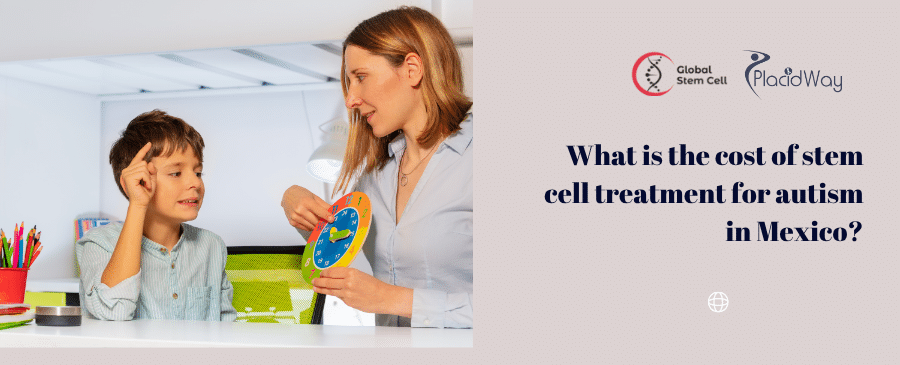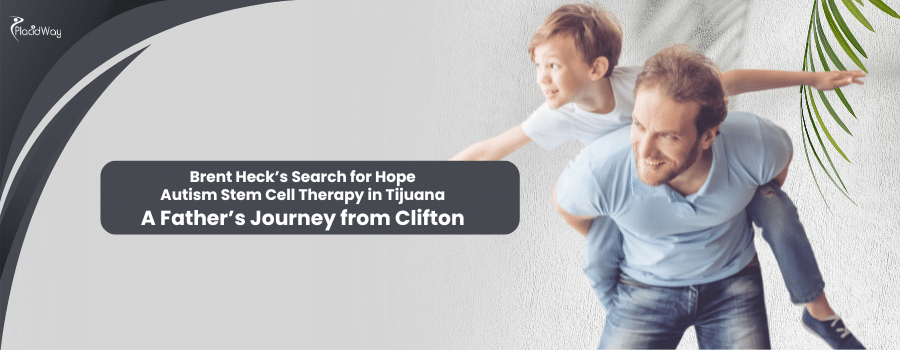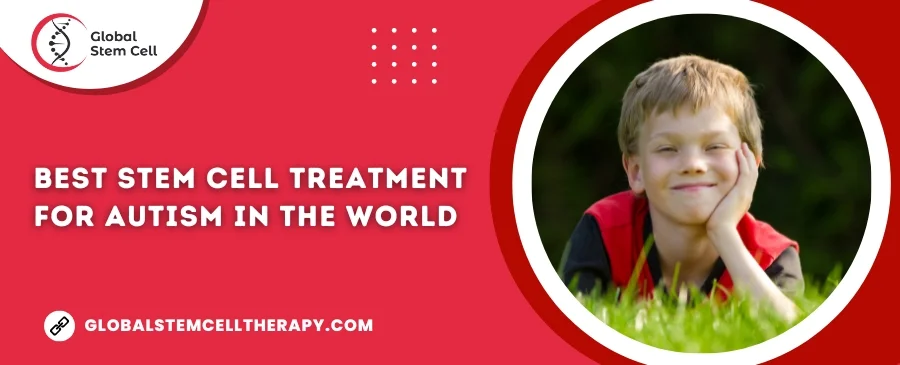
El tratamiento con células madre está dando nuevas esperanzas a las familias que se enfrentan al autismo. Esta terapia está cambiando nuestra forma de concebir el autismo y ayudando a las personas a llevar una vida más sana y feliz. En esta guía, conoceremos los tratamientos más novedosos en todo el mundo que están ayudando a las personas con autismo y a sus familias.
¿Podrían las células madre ayudar a su hijo con autismo?
Clínicas de todo el mundo utilizan células madre para tratar síntomas del autismo como problemas para hablar, hacer amigos y comportamientos repetitivos. El objetivo de este tratamiento es mejorar el funcionamiento del cerebro y mejorar la vida de las personas con autismo y sus familias.
Contenido
Comprender el autismo
El trastorno del espectro autista (TEA) afecta a la forma de hablar, interactuar y comportarse de las personas. Se denomina "espectro" porque las personas con autismo pueden tener puntos fuertes y dificultades muy diferentes. No conocemos todas las razones por las que se produce el autismo, pero parece ser una mezcla de genes, medio ambiente y factores cerebrales.
Causas del autismo
- Factores genéticos: Los genes desempeñan un papel importante en el autismo. Algunos cambios en los genes pueden hacer más probable que alguien tenga autismo.
- Factores medioambientales: Algunos factores, como las infecciones durante el embarazo o la exposición a determinadas sustancias químicas, podrían estar relacionados con el autismo.
- Desarrollo cerebral: Las diferencias en la construcción del cerebro y en la forma en que las partes del cerebro se conectan entre sí también pueden ser una causa del autismo.
Síntomas del autismo
- Retos sociales: Problemas para entender las señales sociales, no establecer contacto visual y dificultad para hacer amigos.
- Dificultades de comunicación: Habla tardía, problemas para usar gestos o repetir palabras o frases.
- Comportamientos repetitivos: Hacer las mismas cosas una y otra vez, estar muy centrado en determinados temas y ceñirse a rutinas.
- Sensibilidades sensoriales: Ser más o menos sensible a cosas como luces, sonidos, texturas o sabores.
- Intereses restringidos: Interés muy fuerte por temas o actividades específicas, sin interesarse por otras cosas.
Diagnóstico del autismo
- Detección precoz: Los médicos buscan signos precoces de autismo en las revisiones periódicas de los niños pequeños.
- Evaluación multidisciplinar: Un equipo de médicos, terapeutas y especialistas examina el comportamiento y el desarrollo del niño para diagnosticar el autismo.
- Información de los padres: Las ideas de los padres sobre el comportamiento de su hijo son importantes para el diagnóstico.
¿Cómo puede ayudar el tratamiento con células madre a las personas con autismo?
La terapia con células madre es una nueva forma de ayudar a las personas con autismo. Su objetivo es facilitar el control de los síntomas y mejorar la salud en general. He aquí cómo la terapia con células madre puede ayudar a las personas con autismo:
- Reducción de la inflamación cerebral Las células madre, como las mesenquimales (MSC), pueden ayudar a reducir la inflamación del cerebro, convirtiéndolo en un lugar más sano para el aprendizaje y el crecimiento.
- Ayudar al cerebro a crecer y cambiar Las células madre pueden ayudar al cerebro a formar nuevas conexiones. Esto podría ayudar a las personas con autismo a hablar mejor, entender a los demás y aprender.
- Reparación de células dañadas Las células madre pueden convertirse en distintos tipos de células, como las cerebrales. Podrían sustituir a las células dañadas del cerebro, mejorando su funcionamiento.
- Mejorar las conexiones nerviosas Las células madre pueden ayudar a las células nerviosas a conectarse mejor, lo que podría mejorar las habilidades sociales, la comunicación y el aprendizaje.
- Ayudar a la conexión intestino-cerebro Muchas personas con autismo tienen problemas estomacales, y los científicos creen que el intestino y el cerebro están conectados. Las células madre podrían ayudar a mejorar la salud intestinal, lo que también podría ayudar al estado de ánimo y al comportamiento.
Las mejores clínicas de terapia con células madre para el autismo del mundo
En lo que se refiere a tratamientos avanzados para el autismo, varias clínicas de todo el mundo destacan por su labor pionera en la terapia con células madre.
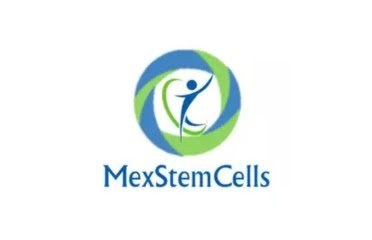
MexStemCells en Ciudad de México, México
MexStemCells es una de las mejores clínicas en México para la terapia con células madre. Utilizan células madre especiales para ayudar con los síntomas del autismo, como problemas para hablar y hacer amigos. La clínica cuenta con médicos que hacen planes de tratamiento especiales sólo para cada paciente para obtener los mejores resultados.

Stem Health en Guadalajara, México
Stem Health, en Guadalajara (México), es conocido por su enfoque de equipo para ayudar a las personas con autismo. Cuentan con médicos, terapeutas y personal sanitario que trabajan juntos para elaborar planes de tratamiento para cada persona.

Alevy en Bogotá, Colombia
Alevy es una clínica puntera de Bogotá (Colombia) que utiliza nuevos tratamientos para el autismo. Utilizan la terapia con células madre junto con otras terapias como la física, la ocupacional y la conductual.

Clínica de células madre Vega en Bangkok, Tailandia
La Clínica Vega de Células Madre de Bangkok (Tailandia) es un lugar muy conocido para la terapia con células madre para el autismo. La clínica utiliza tanto la medicina moderna como los tratamientos tradicionales para ayudar a las personas con autismo.
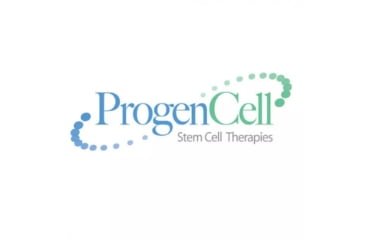
ProgenCell en Tijuana, México
ProgenCell en Tijuana, México, es una de las mejores clínicas de terapia con células madre para el autismo. Utilizan tratamientos avanzados con células madre para ayudar con los síntomas del autismo como la repetición de comportamientos, problemas con las habilidades sociales y la comunicación.
Coste del tratamiento del autismo con células madre
| País | Coste medio en USD |
|---|---|
| Estados Unidos | $30,000 |
| México | $10,000 |
| India | $8,500 |
| Tailandia | $14,000 |
| Austria | $12,000 |
Éxitos del tratamiento del autismo con células madre
Preguntas frecuentes sobre el tratamiento del autismo con células madre
¿Cómo funciona la terapia con células madre para el autismo?
Las células madre pueden convertirse en distintos tipos de células del organismo. En el caso del autismo, estas células pueden ayudar a reducir la inflamación, reparar los tejidos cerebrales dañados y mejorar el funcionamiento del sistema inmunitario. Esto puede mejorar el comportamiento, la comunicación y las habilidades sociales.
¿Qué tipos de células madre se utilizan en el tratamiento del autismo?
Las células madre más utilizadas para el tratamiento del autismo son las células madre mesenquimales (CMM). Proceden de la médula ósea, la grasa (tejido adiposo) o el tejido del cordón umbilical. Son útiles porque pueden reducir la inflamación y ayudar al sistema inmunitario.
¿Es segura la terapia con células madre para el autismo?
La terapia con células madre suele ser segura, pero es importante elegir una clínica con médicos experimentados. También debe hablar con su médico sobre cualquier riesgo o efecto secundario. Se sigue investigando para saber más sobre la seguridad y el éxito de esta terapia.
¿Cuáles son los beneficios de la terapia con células madre para el autismo?
La terapia con células madre puede ayudar a mejorar el comportamiento, la comunicación y la interacción con los demás de las personas con autismo. Algunas personas también observan mejores habilidades de pensamiento y menos problemas como ansiedad o problemas estomacales.
¿Cuánto tiempo se tarda en ver los resultados de la terapia con células madre para el autismo?
El tiempo que se tarda en ver los resultados puede ser diferente para cada persona. Algunas personas pueden ver mejoras en pocas semanas o meses, mientras que otras pueden tardar más. Es importante tener expectativas realistas y mantenerse en contacto con el profesional sanitario.
¿Tiene efectos secundarios la terapia con células madre para el autismo?
Los efectos secundarios suelen ser leves, como dolor en el lugar de la inyección, fiebre o dolor de cabeza. Los problemas graves son raros. Los pacientes deben ser vigilados de cerca por su médico durante el tratamiento.
¿Cuánto cuesta la terapia con células madre para el autismo?
La terapia con células madre para el autismo puede costar entre $5.000 y $20.000 o más. El precio depende de la clínica y del plan de tratamiento. Es una buena idea hablar de los costes con la clínica y preguntar si tienen planes de pago.
¿Está cubierta por el seguro la terapia con células madre para el autismo?
La mayoría de las compañías de seguros no cubren la terapia con células madre para el autismo porque todavía se considera experimental. Debe consultar a su compañía de seguros para conocer su cobertura y lo que podría tener que pagar.
¿Cómo elegir la clínica adecuada para la terapia con células madre para el autismo?
Para elegir la clínica adecuada, fíjese en su reputación, la experiencia de sus médicos, los tipos de células madre que utilizan y sus métodos de tratamiento. Leer opiniones de otros pacientes y hablar con profesionales sanitarios también puede ayudarte a tomar una buena decisión.
Póngase en contacto con nosotros para obtener una consulta con un centro de tratamiento de células madre superior y comenzar su viaje hacia una vida mejor para usted o su ser querido con autismo. Estas clínicas son algunos de los mejores lugares para la terapia con células madre para ayudar con el autismo, y todos ellos trabajan duro para mejorar la calidad de vida de las personas con autismo.




